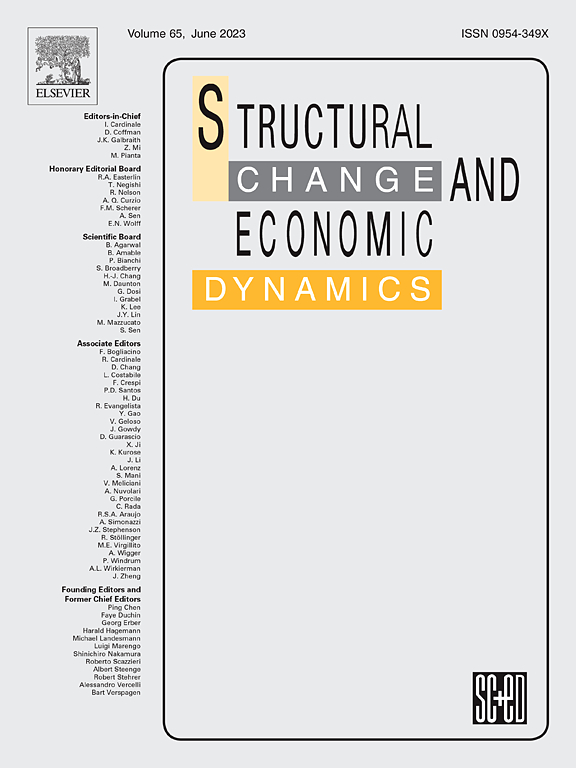基于“动力-效率-质量”三元体系分析的中国能源转型格局形成机制
IF 5.5
2区 经济学
Q1 ECONOMICS
引用次数: 0
摘要
本文引入了分析能源转型模式的“E-DEQ”理论框架,并建立了能源转型的动态、效率和质量评价体系。报告考察了2000年至2019年中国各省“动态-效率-质量”三元体系的演变趋势。本文采用协调发展模型和面板矢量误差修正模型对能源转移模式的协调演化进行了研究。研究结果表明:能源转型系统呈现阶段性波动增长趋势,区域差异显著;东部地区表现最强,中西部地区滞后。发展效应持续提升,促进了体系协调发展,动力是主要驱动因素,呈现出“良性共振、高度协调”的态势。该系统表现出短期交互增强,长期均衡趋势显著,循环累积因果效应明显。本文以中国为例,系统构建了演化经济学视角下的能源转型“E-DEQ”理论框架。该框架旨在为旨在调节动态、提高效率和改善能源转型质量的发展中经济体提供决策支持。本文章由计算机程序翻译,如有差异,请以英文原文为准。
The formation mechanism of China's energy transition pattern based on the analysis of the “dynamics-efficiency-quality” ternary system
This paper introduces the "E-DEQ" theoretical framework for analyzing energy transition patterns and establishes an evaluation system to assess the dynamics, efficiency, and quality of energy transitions. It examines the evolving trends within this "dynamics-efficiency-quality" ternary system across various provinces in China from 2000 to 2019. We employ the coordinated development model and the panel vector error correction model to investigate the coordinated evolution of energy transition patterns. The findings reveal that energy transition system exhibits a phased and fluctuating growth trend characterized by significant regional disparities; the eastern region displays the strongest performance, while the central and western regions lag. The coordinated development of this system is reinforced by a consistently rising development effect, with dynamics serving as the primary driving factor, reflecting a trend of "virtuous resonance and highly coordinated." This system reveals short-term interactive enhancement, a notable long-term equilibrium trend, and a distinct circular cumulative causal effect. This paper methodically constructs the "E-DEQ" theoretical framework for energy transition from the evolutionary economics perspective, with China serving as a case study. The framework is designed to offer decision-making support for developing economies aiming to regulate dynamics, enhance efficiency, and improve the quality of their energy transition.
求助全文
通过发布文献求助,成功后即可免费获取论文全文。
去求助
来源期刊

Structural Change and Economic Dynamics
ECONOMICS-
CiteScore
9.60
自引率
4.90%
发文量
159
期刊介绍:
Structural Change and Economic Dynamics publishes articles about theoretical, applied and methodological aspects of structural change in economic systems. The journal publishes work analysing dynamics and structural breaks in economic, technological, behavioural and institutional patterns.
 求助内容:
求助内容: 应助结果提醒方式:
应助结果提醒方式:


